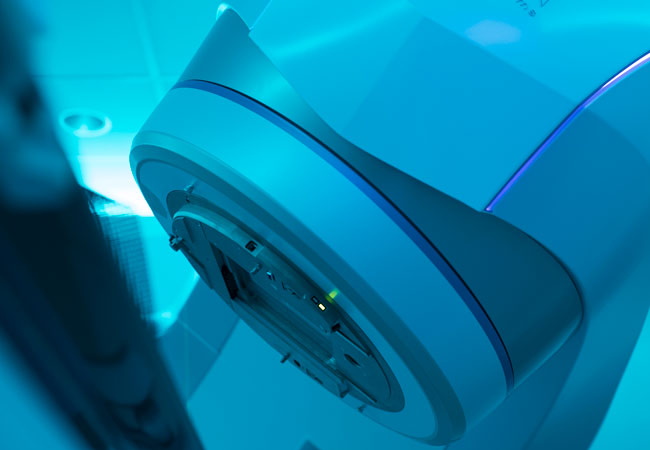Industry NewsLung/Thoracic CancerRadiation & Cancer Biology
New Data Identifies Predictive Signature for Response to Immunotherapy in Lung Cancer Patients
 A new study demonstrates the potential clinical utility of analyzing proteomic changes in plasma during immune checkpoint inhibitor (ICI) therapy to predict individual response in non-small-cell lung carcinoma (NSCLC) patients. The signature was discovered using OncoHost's AI-based platform, PROphet. The study will be presented as a poster at the ESMO Virtual Congress 2021 from September 16-21.
A new study demonstrates the potential clinical utility of analyzing proteomic changes in plasma during immune checkpoint inhibitor (ICI) therapy to predict individual response in non-small-cell lung carcinoma (NSCLC) patients. The signature was discovered using OncoHost's AI-based platform, PROphet. The study will be presented as a poster at the ESMO Virtual Congress 2021 from September 16-21.
ICI-based treatment has revolutionized the cancer therapy landscape, displaying a significant response in patients with advanced stage disease. However, only a small fraction of patients actually responds to this treatment, making it critical to identify reliable biomarkers for response and understand the mechanisms underlying resistance. OncoHost's PROphet platform utilizes advanced machine learning and bioinformatics to analyze the complex tumor-patient-treatment biologic interplay, providing clinicians and their patients with a clinically actionable “disease navigator.”
“This study has revealed that OncoHost's bioinformatic analysis and host response evaluation based on proteomic data can help predict patient outcomes with very high accuracy,” said Professor Yuval Shaked, founder and Chief Scientific Advisor at OncoHost, and Professor of Cell Biology and Cancer Science at the Technion – Israel Institute of Technology. “We are proud to be taking such strides in overcoming the challenge of non-responsiveness to immunotherapy and advancing the development of novel therapeutic strategies.”
Researchers examined host-mediated effects occurring in response to ICI treatment, and their contribution to therapy resistance in stage IV NSCLC patients. Overall, 108 subjects participated in the study, of whom 80 were responders and 28 were non-responders. The research revealed that plasma proteome changes occur following immunotherapy, suggesting host (patient) response to ICI treatment. An analysis of differentially expressed proteins in the patients indicated therapy-specific mechanisms of resistance.
“Traditional precision medicine searches for biomarkers at the therapy-tumor axis. By adding the patient to the equation, OncoHost is fighting cancer through a distinctive, deep profiling of the patient-tumor interface,” said Dr. Ofer Sharon, CEO of OncoHost. “Our research demonstrates the potential clinical utility of PROphet, offering physicians targeted treatment options for their patients and identifying previously unanticipated targets for future interventions and clinical trials.”
The clinical study was conducted in collaboration with the Chaim Sheba Medical Center Institute of Oncology, the Technion Institute of Technology, Thomas Jefferson University and the University of Connecticut.
